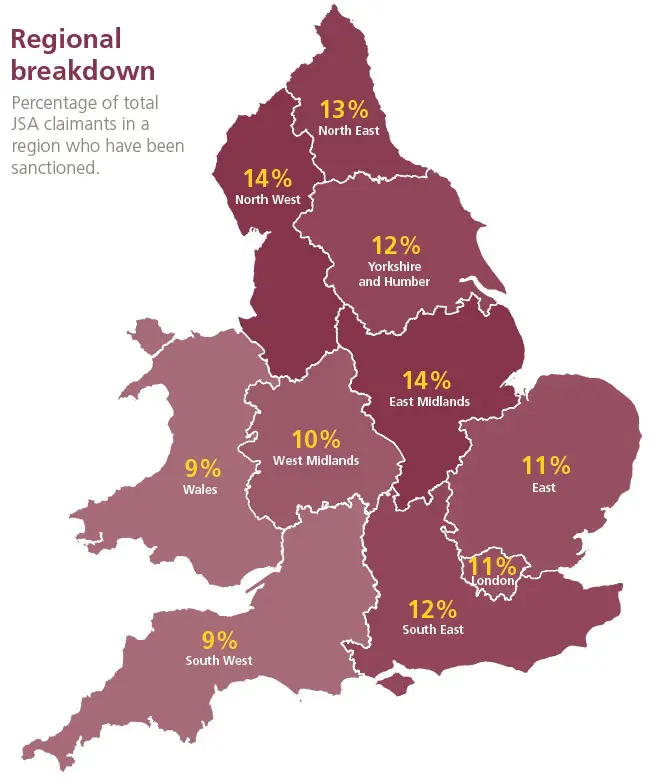Thanks to Lee Hodgson, Chief Executive of Isle of Wight Citizens Advice Bureau (CAB), for sharing this latest news with OnTheWight readers. Ed
Isle of Wight CAB warns the minimum four week sanction for JSA claimants risks pushing people on the Isle of Wight further away from work, according to new figures released today by the charity.
132% sanctions increase in the South East
The South East has seen a 132 per cent increase in the number of problems related to JSA sanctions compared to the same period the year before.
In the three months to December 2013 Isle of Wight CAB alone dealt with 47 JSA sanction problems the highest by someway in the South East and in the worst 10% of the UK
Longer minimum sanctions counterproductive
Citizens Advice is concerned that the longer minimum sanction period—when people are left without the financial support of their benefit—is having a counterproductive effect. Claimants are distracted from job-hunting as they focus on putting food on the table and keeping a roof over their head.
Since the extension of the minimum sanction in October 2012 over £7 million has been spent on JSA sanction appeal tribunals.
Struggling to make ends meet
Citizens Advice has found that many JSA claimants are already struggling to make ends meet. From October to December last 2013:
- 1 in 4 Citizens Advice clients with a JSA sanction problem had dependent children
- 1 in 4 identified as being disabled of suffering from a long term health condition
- 1 in 6 also had a debt problem
- 1 in 10 had issues with rent arrears or threat or reality of homelessness
Pushing people further into debt
The extra pressure and financial burden caused by sanctions risks parents struggling to put food on the table, pushing people further into debt and impacting upon their health.
Of the 100,000 foodbank vouchers issued by Citizens Advice Bureaux last year, 16 per cent were needed because of benefit sanctions.
Often forced into the hands of payday lenders
Chief Executive of Isle of Wight CAB, Lee Hodgson said:
“We see people sanctioned who are desperate for money. Parents are often forced into the hands of payday lenders, which only make things worse.
“Sanctioning can have a negative effect on somebodies mental health. Being sanctioned can actually put someone further away from the workplace; they’re so busy trying to put food on the table they can’t look for a job.
“Some people don’t even know when they’ve been sanctioned, so by the time the money stops there’s no time for emergency budgeting, challenging the sanction or access to hardship payments. For the first week they’ll struggle to get by, scraping the barrel of what they have. The second week they might borrow from family or friends, but by the third week they are desperate, and that’s when they come to us.”
“The minimum four week sanction is setting people up to fail and creating a barrier which can stop them from looking for work. Four weeks is a long time to go without money to get by and people are struggling to make ends meet.
“The success rate of sanction appeals reveals a culture of ‘sanction first and ask questions later’. This is not only ineffective and a huge waste of money but also has a devastating effect on thousands of people’s lives.
“People need a system that can take into account their situation, set suitable work search requirements and where necessary apply sanctions at a level that won’t limit their chances of employment. Whilst it is vital that people receiving taxpayers’ support do their utmost to find work, the model needs to work and not make it harder for claimants to find a job.
“To date, Work Programme contractors have been responsible for twice as many sanctions on the people referred to them as they have successfully helped people find work. Combined with Citizens Advice’s latest figures this paints the strongest picture yet that the system is not working as it should.”






